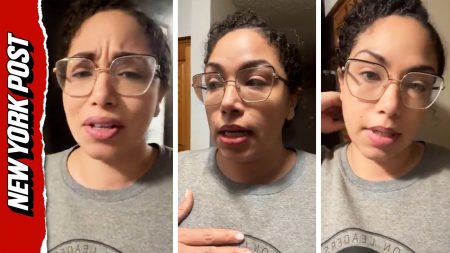City of Asheville Faces Budget Woes

The City of Asheville’s recent budget planning on April 3rd started out as an in-house workshop, but turned into a town hall meeting at the U. S. Cellular Center when news circulated that budget projections would have an major impact on city residents.
Faced with a fiscal crises brought on primarily by the state legislature in Raleigh, these measures would severely undercut the city’s ability to raise new revenue while eliminating resources that Asheville has long relied on.
The city also discussed raising fees effective July 1, to bring in an extra $2.1 million in revenue to address the current $2 million gap in revenues v. expenditures. Potential budget-balancing strategies to close the gap were introduced at the March 12 Asheville City Council budget work session.
City officials describe financial imbalance
As the audience looked on in disbelief at what was being presented, Mayor Bellamy stated, “The city of Asheville has recently weathered the worst recession since the Great Depression. We want to be as transparent as we can so you will know what is happening within the city.”
Lauren Bradley, Director of Finance for the city, explained, “We’ve really kind of ‘wrung the towel out’ as much as we could without raising property taxes or reducing services in a meaningful way. Financial analysis indicates that legislation currently in the North Carolina General Assembly could widen that gap to $5.7 million. So the city’s purpose is to begin contingency planning in earnest for a predicted $5.7 million gap. All of our efforts would have made for a balanced budget had it not been for legislation in Raleigh.”
Bradley continued, “Proposed legislation would require service reductions or increased taxes. Senate Bill 394 includes a broad range of revenue reforms that impact the city’s municipal revenue. With revenue growth slowing down, and expenditures continually increasing, the city is suffering from a loss of revenues from a sector of the region that uses city amenities, but do not pay taxes. The population growth is approximately 60% during the daytime hours, and recedes significantly at night. If the water system is to be transferred, that potential impact would be a $1.9-million-dollar loss to city’s revenue fund, creating a $6-million-dollar gap in revenue.”
This represents almost eight million dollars of lost revenue that may impact the city. Cuts will impact: Transit -eliminating Saturday bus service, Parks, the Nature Center, all youth and adult athletics, closing a fire station, and cutting or freezing 15 jobs, according to city officials.
Among the legislative measures introduced in Raleigh is one that would take the city’s water system and give it to the Metropolitan Sewerage District authority. The legislature would also prohibit the city’s use of water revenues for infrastructure improvements such as repaving city streets torn up by required replacement of water lines.
Under legislation proposed by Rep. Tim Moffitt (R-Buncombe), if the independent water authority tore up city streets to benefit county residents by replacing trunk lines, city residents would be solely responsible for paying to repair and repave them. Even regular repaving will suffer: streets would wait an average 65 years for resurfacing instead of the recommended 20. Their action was the latest in a series of anti-Asheville legislation that could only be considered “vindictive,” according to City Council member Jan Davis.
Also debated at the beginning of April was a bill removing Asheville’s extraterritorial jurisdiction authority.
GOP legislators deny impact on city
Republican Sen. Tom Apodaca, who represents parts of Buncombe County and chairs the powerful rules committee, said the city is bluffing.
“I think it’s absolutely ridiculous,” he said. “I haven’t heard this from any other city in North Carolina. They complain, but I don’t think they have anything to validate this.”
He said the city should not have been using its water system revenue for anything but improvements to the system. But, the legislature in 2009 deliberately gave the city authority to do just that, in exchange for its refusal to allow the city to charge differential water rates for customers inside and out
side the city, as is done by every other municipal water system in the state. That revenue has allowed the city to fix problems caused by water line issues as well as to make required improvement not affordable with general funding.
Apodaca is one of three Republican legislators, along with Nathan Ramsey and Tim Moffett, who represent parts of Buncombe County and have introduced most of the legislation affecting Asheville’s ability to thrive.
The city of 80,000 is the economic engine for the entire WNC region, but its importance as a business hub is dismissed by representatives who have made it clear that they think the city has too much power for its size. Unfortunately for the region, if Asheville is diminished, the entire 18-county region will likely become more and more like the most impoverished areas of Appalachia.
Citizens Response to the budget

Residents – some in shock and others in tears – lined up to speak at the microphone to tell the Asheville City Council what they thought the proposed sweeping budget cuts would do.
“What in the world are our kids going to do?” asked Jeff Joyce, a retired city worker. “I’m sorry, but Little League is a national pastime. I can’t believe this one is on the table.”
Resident David Nutter said, “I’ll appeal directly to Governor McCory regarding the effect these cuts will have on the residence of Asheville. This is an unprecedented hostility imparted upon our city by legislators who don’t have our best interests at heart.”
Pastor Spencer Hardaway called on the Council to, “Please be mindful that a cut in park and recreation services would affect the youth, young adults in the area who’s’ only social outlets are these recreation centers.”
Norma Baynes, a member of the Shiloh community, said she was concerned that cuts would mean the end of scholarships for summer programs that keep kids off the streets.
“They really need those scholarships,” she said.
John K. Spitzberg with the homeless network stated: “In general the most marginalized and vulnerable citizens are the ones to experience loss when communities are asked to tighten their belts. It is no different here in Asheville. Homelessness and poverty speak to a society’s inability to make resources available to help those who most need them.”
John went on to say, “When our only day shelter must close their doors due to lack of resources, it means that people must walk the streets, fend for themselves and are therefore vulnerable to citations given by police for violations of ordinances which cause no harm to others,” he concluded.
Similar actions elsewhere
Recently, North Carolina legislators moved to take control of Mecklenburg County’s Charlotte-Douglas International Airport from city officials, who have run the airport since the 1930s. The state Senate voted 33-16 along party lines to give control of the airport to a new regional airport authority run primarily by representatives of five surrounding counties (including in South Carolina), the governor, and legislative leaders.
Because it is a “local law” that affects only one region, county, or municipality, The governor neither signs it into law nor has a chance to veto it; it passes by legislative act alone, without any input from the municipal or county officials affected. Gov. Pat McCrory, the former Charlotte mayor, has urged his fellow Republicans in the General Assembly to slow down and study the impact of a takeover, but would not say whether or not he opposed the idea.
According to the State Treasurer’s office, the Republican senators’ proposal to give control of the airport to regional authority could increase borrowing costs for cities, counties, and other local governments throughout the state. Bonds like those used to expand the airport rely on future earnings to pay interest and principle over time; if the revenue source is taken away by legislative fiat, the city’s ability to borrow will be in question in the future – and it could even be forced to default on the bonds.
Such a precedent would impact borrowing for all municipalities and counties in the state; lenders would be leery of lending money to an entity that might no longer be able to pay it back, and therefore would charge higher interest rates in exchange for higher risk.
According to Rep. Susan Fisher (D-Buncombe), “I believe lawmakers are sending the wrong message by undoing state contracts and failing to honor a valid agreement made between North Carolina and the City of Raleigh. The state runs the risk of losing its credibility as an economic resource for future businesses which may question the integrity of a government that doesn’t abide by its own terms.”





